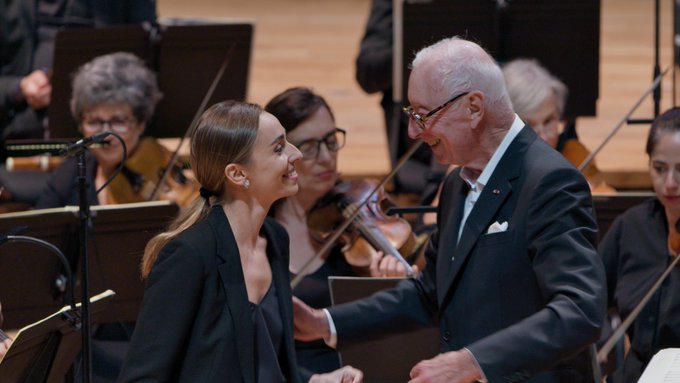Call for Papers (CfP): Special issue on time-frequency methods for condition based maintenance and modal analysis
In recent years, research in the area of Condition-Based Maintenance (CBM) and Modal Analysis (MA) has been growing rapidly benefiting from the development of more advanced and accurate time-frequency methods. CBM is a decision making strategy which was introduced to recommend maintenance actions when the output of the sensors placed on the physical equipment fulfill a set of predefined criteria defining abnormal behaviors. CBM is based on using real-time data to prioritize and to optimize maintenance resources. It enables real-time diagnosis of impending failures and prognosis of remaining useful life of equipment without interrupting normal operations through analyzing and interpreting the measured data. Intensively used in CBM, the MA is concerned with the identification of the natural mode shapes and frequencies of structures or fluids under vibrational excitation.
Multi-purpose time-frequency methods like the short-time Fourier transform, the Wigner-Ville distribution or wavelets etc. are signal processing techniques which are applied in mechanical structures analysis for investigating functional parameters that are evolving in time like structural damages, cracks or deformations. Their usefulness in practice consists mainly in the fact that they are non-invasive techniques. This call for papers is aiming to stimulate not only new insides on the standard time-frequency techniques for signal processing but also recently developed methods like non-stationary Gabor frames, curvelets, adaptive wavelet families, sparse decompositions etc. with potential applications to dynamic data processing in manufacturing, mechanical structures and acoustics. Therefore, the main objective of this special issue is to bring the ideas of worldwide research community to present the latest developments and to advance the fields of CBM and MA through applications of the modern time-frequency processing techniques.
The following topics are of main interest:
Important dates:
Submission Guidelines:
Authors are invited to submit their papers via the Elsevier submission web site at http://ees.elsevier.com/sigpro/login.asp and please select the Item: “Time-frequency for CBM&MA” after you log in as an author. Please also refer to the complete Author Guidelines.
Guest editors:
In recent years, research in the area of Condition-Based Maintenance (CBM) and Modal Analysis (MA) has been growing rapidly benefiting from the development of more advanced and accurate time-frequency methods. CBM is a decision making strategy which was introduced to recommend maintenance actions when the output of the sensors placed on the physical equipment fulfill a set of predefined criteria defining abnormal behaviors. CBM is based on using real-time data to prioritize and to optimize maintenance resources. It enables real-time diagnosis of impending failures and prognosis of remaining useful life of equipment without interrupting normal operations through analyzing and interpreting the measured data. Intensively used in CBM, the MA is concerned with the identification of the natural mode shapes and frequencies of structures or fluids under vibrational excitation.
Multi-purpose time-frequency methods like the short-time Fourier transform, the Wigner-Ville distribution or wavelets etc. are signal processing techniques which are applied in mechanical structures analysis for investigating functional parameters that are evolving in time like structural damages, cracks or deformations. Their usefulness in practice consists mainly in the fact that they are non-invasive techniques. This call for papers is aiming to stimulate not only new insides on the standard time-frequency techniques for signal processing but also recently developed methods like non-stationary Gabor frames, curvelets, adaptive wavelet families, sparse decompositions etc. with potential applications to dynamic data processing in manufacturing, mechanical structures and acoustics. Therefore, the main objective of this special issue is to bring the ideas of worldwide research community to present the latest developments and to advance the fields of CBM and MA through applications of the modern time-frequency processing techniques.
The following topics are of main interest:
- Time-frequency methods for diagnostics, prognostics and features extraction
- Time-frequency methods for modal analysis
- Wavelet-based vibration monitoring and control
- Natural frequencies identification
- Sparse signal analysis
- Online, segment-wise and parallel time-frequency implementations
- Assessment studies of different signal processing techniques
- Hardware and application constraints when building CBM systems
- Applications in radar, mechanics, acoustics, etc.
Important dates:
- Manuscript due: November 30, 2012
- First Round of Reviews: January 31, 2013
- Second Round of Reviews: March 31, 2013
- Publication date: June 1, 2013
Submission Guidelines:
Authors are invited to submit their papers via the Elsevier submission web site at http://ees.elsevier.com/sigpro/login.asp and please select the Item: “Time-frequency for CBM&MA” after you log in as an author. Please also refer to the complete Author Guidelines.
Guest editors:
- Dr. Darian M. Onchis - University of Vienna & University of Resita, (darian.onchis@univie.ac.at)
- Dr. Ruqiang Yan - Southeast University, (ruqiang@seu.edu.cn)
- Dr. Pavel Rajmic - University of Brno, (rajmic@feec.vutbr.cz)
And of course remember this other recent special issue on the topic of
multirate/multiscale methods in signal and image processing. Signal
Processing: Special issue on Advances in Multirate Filter Bank Structures and Multiscale Representations, Vol. 91, Issue 12, Dec. 2011 (more here).
